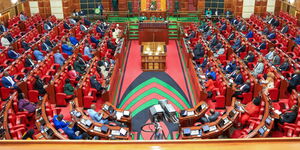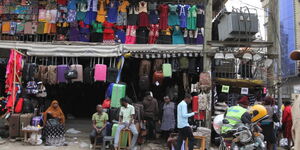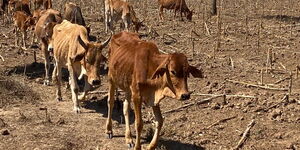President William Ruto has announced an elaborate strategy to curb post-harvest losses in the country amid concerns in key agricultural sectors like tea.
Speaking during the official opening of the 2026 Nairobi International Trade Fair at Jamhuri Park on Wednesday, Ruto revealed the government's plans to invest in value addition by establishing modern agro-processing facilities across the items, among other bold reforms aimed at boosting farmer incomes and unlocking new global markets.
“For decades, we have exported our tea, coffee, cotton, livestock, fish, and hides in raw form only to import them back as expensive finished products,” said the President. “This model has denied farmers the full value of their work. That era must end.”
To curb the over-reliance on exporting raw materials, President Ruto revealed the government would roll out County Aggregation and Industrial Parks (CAIPs) and common user facilities in all 47 counties.
The hubs will allow farmers to store, process and sell their produce more efficiently, and effectively cut down post-harvest losses since there will be no middlemen.
"These industrial parks will offer cold storage, warehousing, and processing facilities, linking farmers directly to both local and export markets," said Ruto. “This will raise earnings, create jobs, and keep more wealth in Kenya.”
Further, the government is also partnering with the private sector to set up tea value-addition centres in various regions, including Kericho, Nairobi and Mombasa, in a bid to grow value-added tea exports from the current 5 per cent to at least 50 per cent in the medium term.
Beyond value addition and infrastructure, the government has also sought to secure larger, more lucrative export markets for farmers by signing new trade agreements with the African Continental Free Trade Area, the European Union, China, and the United Arab Emirates.
“Value addition alone is not enough. Farmers need access to buyers. That’s why these trade agreements are crucial; they give Kenyan products a bigger platform,” he explained.
In a bid to support production, the government announced plans to distribute 12.5 million bags of fertiliser during the 2026 planting season. This is in addition to the 4.5 million bags which have already been procured for the short rains.
A crucial Ksh3.7 billion in concessional loans has also been secured by the Kenya Development Corporation to help Kenya Tea Development Agency (KTDA) farmers modernise their equipment, lower production costs and expand into Orthodox tea production.
Notably, the switch to orthodox tea is a timely intervention by the government after it emerged that there was a sharp decline in farmers' bonuses, which the KTDA attributed to, among other factors, international market conditions.












